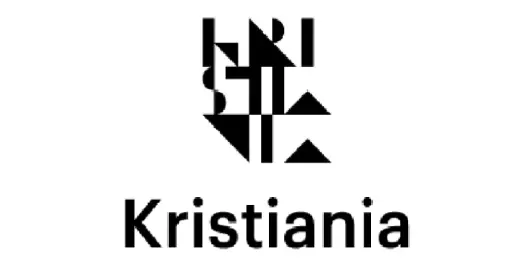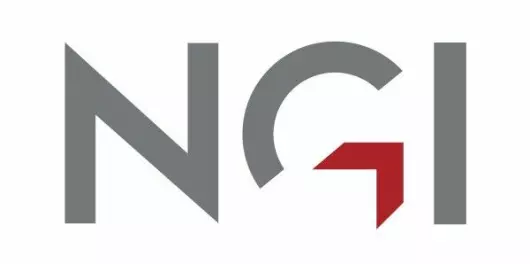Ledig stilling på Universitetet i Oslo
Blindern og Urbygningen (Foto: Wikimedia og Colourbox)
PhD Research Fellow in Detector Physics
Deadline: 28.02.2021
Universitetet i Oslo
The University of Oslo is Norway’s oldest and highest rated institution of research and education with 28 000 students and 7000 employees. Its broad range of academic disciplines and internationally esteemed research communities make UiO an important contributor to society.
The research at the Department of Physics covers a broad range of subfields within physics and technology: From space research to medical physics. A good proportion of the research is interdisciplinary, and conducted in close cooperation with collaborators in Norway and abroad.
Education and teaching are other essential activities. We offer a broad range of courses, and the Department is involved in several study programmes at bachelor’s and master’s level. Some of the best lecturers in Norway are amongst our employees, and we are proud of our prizewinning teaching and learning environment. The Department has 200 employees, of which 50 are permanent scientific positions. On a yearly basis 20 students complete their Ph.D. and 50 finish their M.Sc. degree.
Job description
A position as PhD Research fellow (Stipendiat SKO 1017) in Detector Physics is available at The Department of Physics.
The PhD position is of 3 years duration. If the candidate has the necessary qualifications and based on the teaching need of the Department, the candidate can apply for an additional 25 % teaching duty resulting in a total length of the fellowship of 4 years.
No one can be appointed for more than one PhD Research Fellowship period at the University of Oslo.
Starting date as soon as possible, no later than 01.10.2021.
More about the position
The position is associated with the Norwegian ALICE project at CERN, funded by the Norwegian Research Council. The high energy physics and electronics sections of the Department of Physics participate in the ALICE experiment, which currently is preparing for a third round of data taking at the Large Hadron Collider at CERN (LHC Run 3). A further upgrade of the ALICE experiment is planned for Run 4, where a new high-granularity forward calorimeter (FoCal) will extend the forward physics capabilities of the ALICE detector. FoCal is designed for exploring the poorly known forward kinematic regime of parton distributions in nucleons and nuclei at high energy, characterized by very high gluon densities and saturation effects, through measurements of prompt photons, neutral mesons, jets and also heavy quarkonia.
The FoCal detector will be placed in a forward rapidity region close to the beampipe and will consist of an electromagnetic calorimeter (FoCal-E) and a hadron calorimeter (FoCal-H). The FoCal-E is designed with sheets of tungsten interleaved with sheets of silicon detectors.
Two types of sensor planes are used: low granularity (LG) and high granularity (HG). The HG planes will consist of Monolithic Active Pixel Sensors (MAPS) with a pixel size of about 30 x 30 mm2, while the LG planes will consist of an array of silicon pads of size 1 x 1 cm2.
The successful candidate will primarily contribute to the testing and characterization of detector prototypes, investigating detector performance parameters such as energy resolution and shower evolution. During the project, the candidate is expected to take part in beam tests and contribute to both data analysis and detector simulation. The candidate will be based in Oslo, but will be expected to spend some time participating in data taking and other ALICE activities at CERN or other collaborating institutions.
Information about the research at The Department of Physics is found on here.
Qualification requirements
The Faculty of Mathematics and Natural Sciences has a strategic ambition to be among Europe’s leading communities for research, education and innovation. Candidates for these fellowships will be selected in accordance with this, and expected to be in the upper segment of their class with respect to academic credentials.
- Applicants must hold a Master's degree or equivalent in detector physics, high-energy experimental nuclear or particle physics, or a related discipline.
- Foreign completed degrees (at M.Sc. level) must correspond to a minimum of four years in the Norwegian educational system.
- Knowledge of silicon detectors and good programming skills with experience in data analysis and / or simulations are essential.
- Experience from performing beam tests and other relevant experiments is considered a strong advantage.
- We seek candidates with good social and collaboration skills and ability to work independently and in an interdisciplinary scientific environment
Candidates without a Master’s degree have until 30 June, 2021 to complete the final exam.
Grade and language requirements:
The norm is as follows:
- the average grade point for courses included in the Bachelor’s degree must be C or better in the Norwegian educational system
- the average grade point for courses included in the Master’s degree must be B or better in the Norwegian educational system
- the Master’s thesis must have the grade B or better in the Norwegian educational system
- fluent oral and written communication skills in English.
- for candidates who apply for a fourth year including teaching, good knowledge of Norwegian or another Scandinavian language is strongly preferred.
Please see the following link for more information regarding English requirements for applicants from outside of EU/EEA countries and exemptions from the requirements:
The purpose of the fellowship is research training leading to the successful completion of a PhD degree.
The fellowship requires admission to the PhD programme at the Faculty of Mathematics and Natural Sciences. The application to the PhD programme must be submitted to the department no later than two months after taking up the position. For more information see:
http://www.uio.no/english/research/phd/
http://www.mn.uio.no/english/research/phd/
We offer
- Salary NOK 482 200 – 526 000 per annum depending on qualifications and seniority as PhD Research Fellow (position code 1017)
- Attractive welfare benefits and a generous pension agreement
- Vibrant international academic environment
- Career development programmes
- Oslo’s family-friendly surroundings with their rich opportunities for culture and outdoor activities
How to apply
The application must include:
- Cover letter - statement of motivation and research interests
- CV (summarizing education, positions and academic work - scientific publications)
- Copies of the original Bachelor and Master’s degree diploma
- Transcripts of grades/records
- Letters of recommendation
- Documentation of English proficiency
- List of publications and academic work that the applicant wishes to be considered by the evaluation committee
- Names and contact details of 2-3 references (name, relation to candidate, e-mail and telephone number)
- Applicants who are interested in teaching need to add to this application a description of their motivation for teaching.
The application with attachments must be delivered in our electronic recruiting system (please follow the link “Apply for this job”). Foreign applicants are advised to attach an explanation of their University's grading system. Please note that all documents should be in English or a Scandinavian language.
Interviews will be carried out as part of the hiring process.
Formal regulations
Please see the guidelines and regulations for appointments to Research Fellowships at the University of Oslo.
According to the Norwegian Freedom of Information Act (Offentleglova) information about the applicant may be included in the public applicant list, also in cases where the applicant has requested non-disclosure.
The University of Oslo has an agreement for all employees, aiming to secure rights to research results etc.
The University of Oslo aims to achieve a balanced gender composition in the workforce and to recruit people with ethnic minority backgrounds.
Contact information
For further information please contact:
For thechnical questions regarding the recruitment system; contact Elin Thoresen, elin.thoresen@mn.uio.no.
Apply for this job













